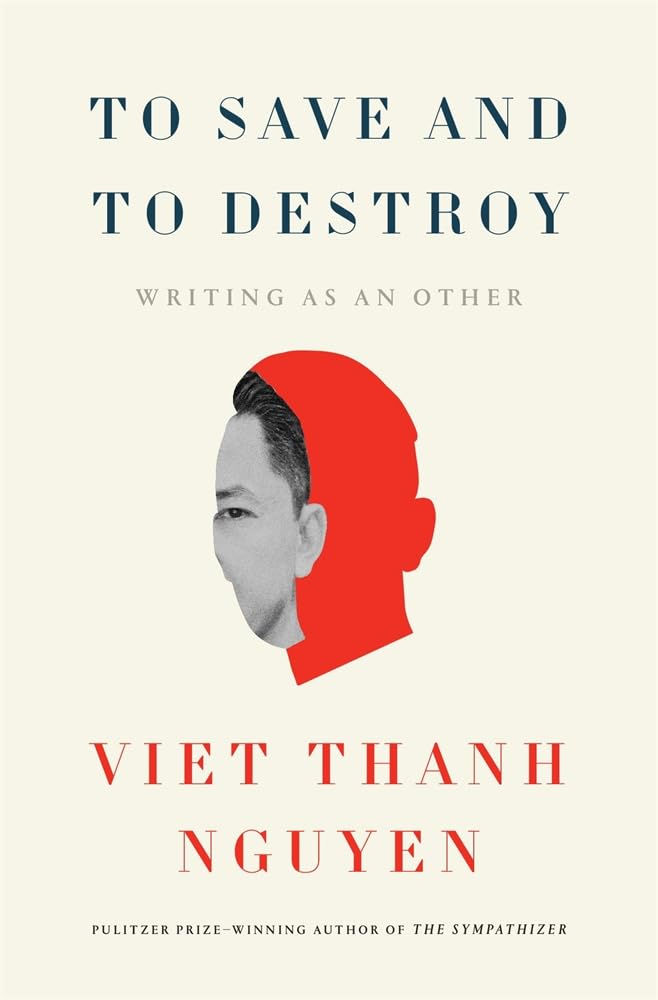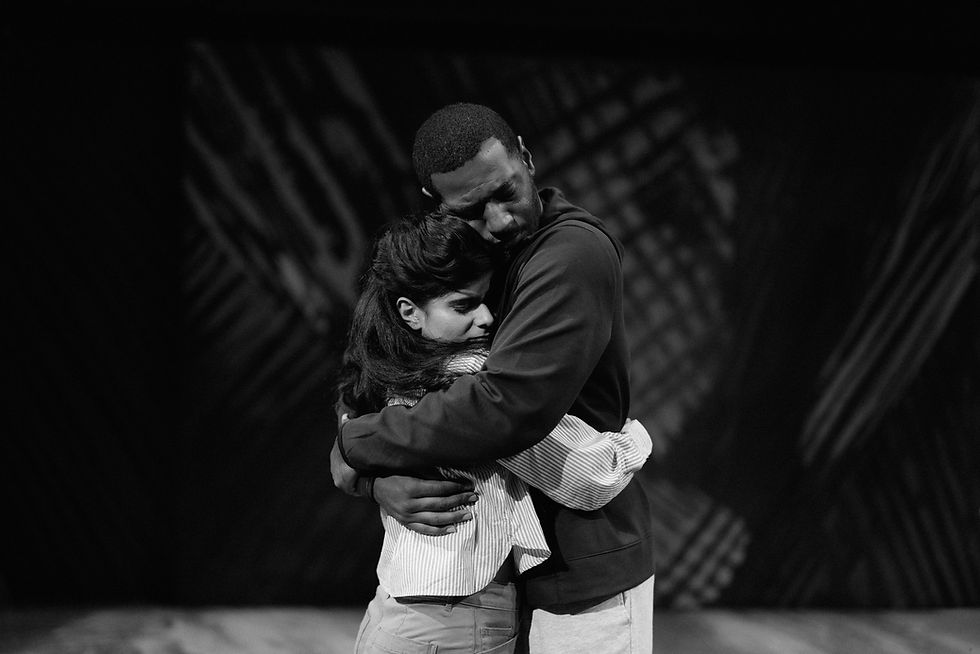Nguyen’s Intense ‘To Save and to Destroy’ Essays Find Voice Within the Empire
- Christopher John Stephens
- Aug 22
- 4 min read

The legendary 19th-century poet Arthur Rimbaud wrote for only five years, quit by the time he was 21, but left us with one of the more iconic reflections on identity and purpose:
“I is an other…I witness the unfolding of my own thought: I watch it, I hear it…”
The notion of identity, perhaps akin to accountability and responsibility, has forever hovered amid the atmosphere of great writers and thinkers. Who are we? Where does the “truth” of our identity melt into or clash with the mission of our art? Viet Thanh Nguyen’s To Save And To Destroy: Writing As An Other, is an intense collection of six essays first presented as part of Harvard’s Norton Lecture series that look at identity from various perspectives: “On The Double, Or Inauthenticity,” “On Speaking for An Other,” “On Palestine and Asia,” On Crossing Borders “On Being Minor,” and “On The Joy Of Otherness.” Taken as a whole, they bring to mind another reflection from Rimbaud’s A Season In Hell and The Drunken Boat:
“Is it in these bottomless nights that you sleep in exile?”
Nguyen comes to these reflections through definite blood, sweat, and tears. He arrived in the United States as a child orphan from Vietnam in 1975. He and his family moved to San Jose, where Nguyen came of age as a thinker, writer, and activist in the wake of Vincent Chin’s 1982 murder. Nguyen won the Pulitzer Prize in 2016 for his debut novel, The Sympathizer, which looked at the life and times of a South Vietnamese Communist double agent during the final years of the Vietnam War.
Nguyen’s work has always been equal parts didactic, political, and thrilling in its consistent sense of purpose. He has always commented on the “other,” with a clarification he explains in the prologue of To Save And To Destroy:
“Grappling with one’s individual peculiarity or alienation differs…from having otherness imposed…”
What makes To Save And To Destroy so compelling is not just Nguyen’s understanding of the Norton Lecture mission (focusing on literature). In his first essay on inauthenticity, it’s his shock of recognition when seeing such seminal Vietnam War films as “Apocalypse Now.”
“My family were among the wretched,” he writes. The film portrayed a violence against his people that spoke deeper to him than just what he saw on the screen. In the essay “On Speaking For An Other,” Nguyen reflects on the dual nature of being (but not appearing) American:
“...America’s others were also mine, born from what the poet William Carlos Williams called the ‘orgy of blood’ that is American history.”
That said, Nguyen felt “...our only place in American movies was to be killed, raped, threatened, or rescued.” To his parents he was to become a doctor, but to himself he was being politicized and awakened through a non-fiction writing seminar taught by Maxine Hong Kingston. She explained to him that he didn’t need to worry about being read by or receive appreciation from non-Vietnamese people. His bottom line was that the only way he could find his voice was to stop thinking of himself solely as a minority. He brings writer Arundhati Roy into the discussion, who noted that there were no voiceless people, “...only the deliberately silenced, or the preferably unheard.” Nguyen weaves an intensely personal account of his relationship with his mother into these thoughts of voice and otherness:
“I hear her speak the mother tongue, which is also the other tongue…giving me the confidence needed to portray her. And, in the end, betray her.”
Nguyen’s essay, “On Palestine and Asia” connects his people in the continuing story of the Middle East struggle through the contexts of self-defense, inclusion, and solidarity. If Asian American literature is becoming a subset of imperial literature, Nguyen asks, is this why many Asian Americans are silencing themselves on the question of Palestine? Are they “...part of an imperial United States?” It’s in this essay that Nguyen offers a powerful rant about a hypothetical comic novel that could be written about “the plight of Asian Americans at Harvard.” Were he to know the national threat Harvard would face only two years later from an authoritarian U.S. President, the comic satire would not be so harmless:
“We are valedictorians…We tutor you in math…We dry clean your clothes…We become the objects of your fantasies and desires…We smile and reassure you. We are your friendly competition. Until we are too much competition.”
The essay becomes an intense call for action when Nguyen implores Asian Americans to emerge from the restraints of a mission towards self-defense, inclusion, and solidarity to embrace global solidarity. Much of what makes To Save And To Destroy a powerhouse slim essay collection is Nguyen’s smart and essential wordplay. “On Being A Minor” explores the definitions of minor and major writers and populations. Ralph Ellison, James Baldwin, and Richard Wright are considered in their respective perspectives of the realistic nature of their minor status. Nguyen reminds us that Franz Fanon, in The Wretched Of The Earth, advocated for the inevitable armed struggle against colonization.
To Save And To Destroy is a rich collection of six essays that works on some basic levels. It’s an equal balance of memoir, literary commentary, and a clarion call to action. The 2023 world in which Nguyen delivered these Norton Lectures seems radically different from the world we have today. Where many speech transcripts might read as dry pontifications on paper, To Save And To Destroy is about hope through an understanding of potential. Nguyen is asking a basic question of “other” writers, people of color, anybody who identifies as a minority. Is the act of finding your voice the ultimate compromise to the empire? If so, what does it mean to strive for personhood as an artist yet still want to be part of the empire? Nguyen wisely understands that his mission is to simply pose the questions. Wise readers will provide their own answers.








Comments